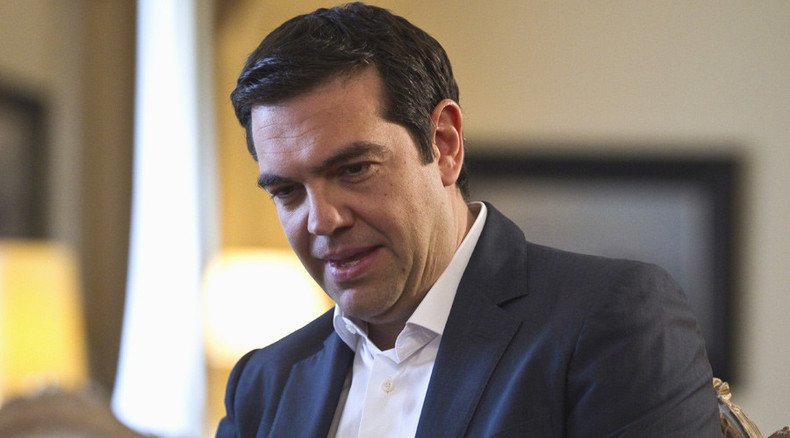Greece was forced to accept 'recessionary' bailout deal - Tsipras

The deal with creditors was “not of our choice,” Prime Minister Alexis Tsipras has said, adding that Greece faced the dilemma between a difficult compromise and disorderly default.
Speaking to the Syriza committee in Athens Thursday, Tsipras tried to defend Greece’s €86 billion bailout deal with the international creditors, saying that Grexit was not a choice. It would have forced Athens into devaluation and going back to the IMF for support, he added.
READ MORE: 5 key points in landmark Greek debt accord
“If someone believes another government could have brought back a better deal they should say so,” Kathimerini newspaper quoted Tsipras as saying.
#Tsipras: we faced choice between difficult compromise or disorderly default
— Kathimerini English (@ekathimerini) July 30, 2015The PM added that Syriza’s efforts had managed to stir up the EU.
“We created the first cracks in Europe's neoliberal hegemony. We have to give a definitive answer on whether a leftist government can exist in a liberal, conservative Europe,” Tsipras said.
This month, Tsipras reached an agreement with the troika of creditors on a €86 billion 3-year financial aid deal. The offer demands further austerity including tax hikes and raising the retirement age.
READ MORE: No to ‘EU colony’: Tsipras faces opposition from govt & people against bailout deal
Many members of Syriza, including former finance minister Yanis Varoufakis, openly consider Alexis Tsipras’ policy contradictory to the results of the July 5 referendum, in which 61 percent voted against austerity. The lack of unanimity in the Greek parliament may put an end to the coalition and thus lead to new elections.
The Greek parliament has already adopted two packages of changes, which allowed Athens to kick off negotiations with creditors on unlocking the bailout.
Greece intends to finish the talks by August 20, when a €3.2 billion bond repayment to the ECB is due.
"There is a viewpoint the blackmail (by creditors) was not real, and there should not be an agreement. This view cannot wait until the extraordinary congress,” Tsipras said, suggesting a ballot on the issue on Sunday.
#Tsipras proposes emergency, open SYRIZA party congress for September #greece
— Kathimerini English (@ekathimerini) July 30, 2015LISTEN MORE:












